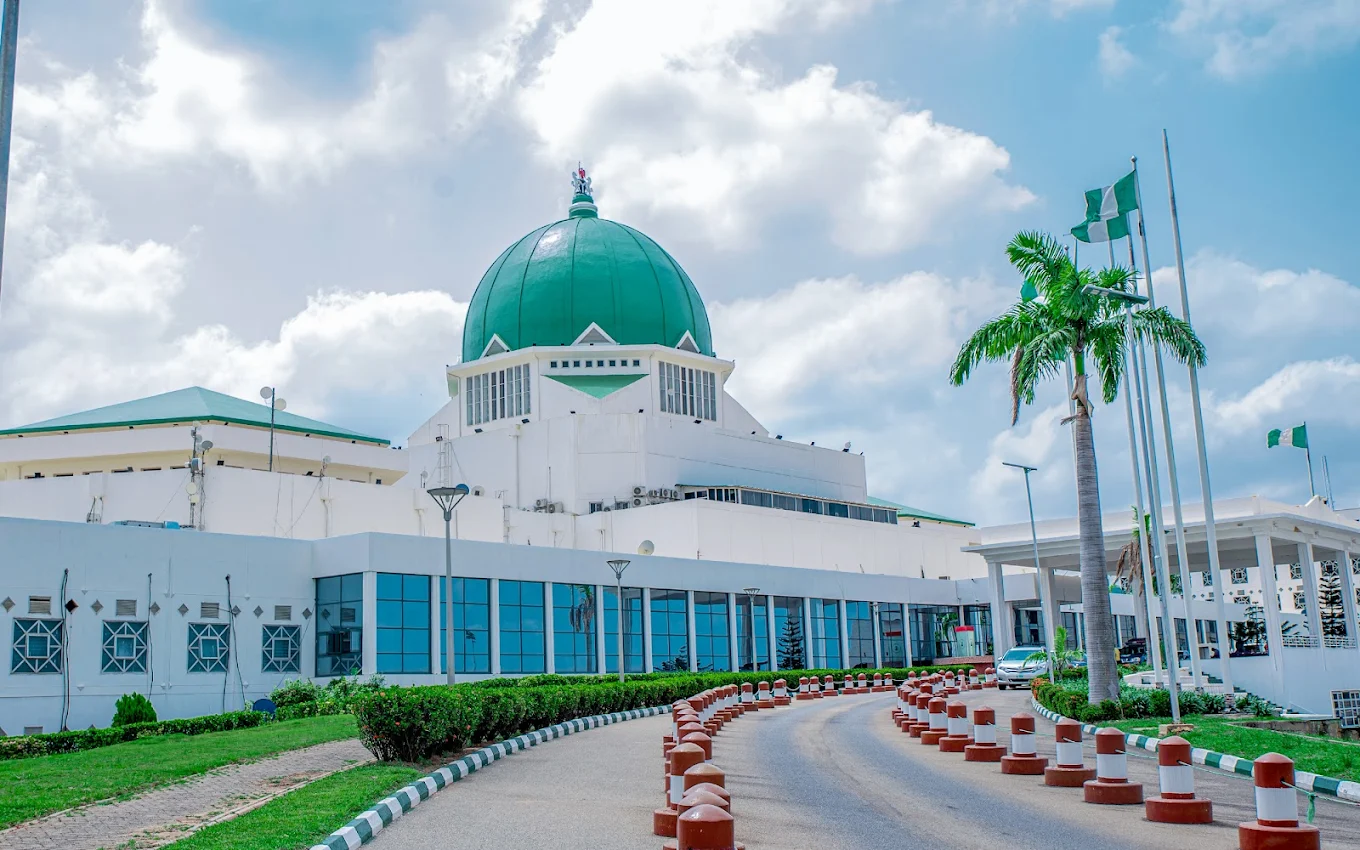The United Nations clocked 80 on October 24, 2025, amid calls for its reform. While we join world leaders, diplomats, multinationals, and others in wishing the UN a brighter future, we urge the octogenarian organisation to renew itself through meaningful reforms to surmount the great obstacles lying ahead.
Founded on October 24, 1945, to succeed the League of Nations in the aftermath of the Second World War, the United Nations marked its 80th anniversary against a backdrop of deep global uncertainty and skepticism about its future.
The global body which was established to save succeeding generations from the scourge of war, promote fundamental human rights, and foster international cooperation, has been celebrated as humanity’s greatest experiment in multilateralism, just as it has also been criticized as an institution trapped in its own contradictions.
Over the last eight decades, the UN has recorded undeniable achievements. For instance, its specialized agencies have advanced global health, development, and humanitarian relief. Through the World Health Organisation (WHO), diseases such as smallpox were eradicated; through UNICEF, millions of children have been rescued from hunger and ignorance. Despite occasional setbacks, the UN’s peacekeeping missions have, since 1948, handled over 70 operations, helping to stabilise countries, including Namibia, Cambodia, Sierra Leone, Liberia, Côte d’Ivoire, and Timor-Leste.
The UN’s conflict mediation has successfully facilitated negotiations in conflicts like the Iran-Iraq War (1980–1988), El Salvador (1992 peace accords), and Mozambique (1992).
Its disarmament efforts have led to the creation of key treaties such as the Nuclear Non-Proliferation Treaty (NPT, 1968), the Chemical Weapons Convention (1992), and the ongoing arms control discussions. The UN has also established landmark frameworks such as the Law of the Sea (UNCLOS, 1982) and the Convention on the Rights of the Child (CRC, 1989). Through the UNHCR (UN Refugee Agency), millions of refugees and internally displaced persons have been safeguarded, notably after wars in Afghanistan, Syria, Sudan, and Ukraine.
On human rights and justice, the UN adopted the Universal Declaration of Human Rights (1948), a landmark document that has influenced constitutions, treaties, and legal systems worldwide. It also established tribunals for Rwanda and the former Yugoslavia, paving the way for the permanent International Criminal Court (ICC).
Yet, as the UN turns 80, the cracks in its edifice are difficult to ignore. Indeed, the organization marked this milestone at a time when the ideals that gave it life are under unprecedented strain. For example, for eight decades, African countries—Nigeria inclusive—have been victims of organized deception, coercion, bullying, blackmail, manipulation, and abuse of power within the UN system.
If the UN must remain credible, its reform can no longer be deferred. Thankfully, the UN Secretary-General, António Guterres, has launched the UN80 Initiative aimed at reforming the organisation to deliver tangible improvements in peace, development, and humanitarian aid.
Addressing world leaders at the 80th session of the UN General Assembly in New York recently, President Bola Tinubu called for sweeping changes at the UN, including a fairer partnership, a permanent Security Council seat for Nigeria and Africa, a new global financial court to manage sovereign debt, and greater fairness in the distribution of mineral wealth. President Tinubu stated that if the UN must recover its relevance, Nigeria must have a permanent seat on the Security Council. He highlighted Nigeria’s evolution from “a colony of 20 million people, absent from the tables where decisions about our fate were taken,” to a “sovereign nation of over 236 million, projected to be the third most populous country in the world, with one of the youngest and most dynamic populations on earth.”
The United Nations ought to be a meeting ground for equal sovereign nations. Unfortunately, the impression being conveyed today is that only the United States is calling the shots at the UN, while African countries are relegated to subservient roles. For example, at the 79th Session of the United Nations General Assembly (UNGA) held at the UN headquarters in New York, where Tinubu requested a permanent seat for Nigeria on the powerful UN Security Council, the United States Ambassador to the UN, Linda Thomas-Greenfield, stated that if permanent seats were to be given to Nigeria or other African countries, they would be without veto power, because granting such power to African states would make the Security Council’s work dysfunctional.
This is a big insult to Nigeria and other African countries. An end must be put to the marginalization of Nigeria and other African nations at the UN. Such marginalization is detrimental to the maintenance of international peace and security. Africa deserves the respect it is owed within the United Nations. The African continent has come of age. It deserves a place among the permanent members of the Security Council, with the same veto rights and responsibilities as other permanent members.
Most lamentably, the UN has been captured by a narrow Western ideological perspective, prioritizing the funding and promotion of controversial issues such as LGBT rights (the UN has even produced gay-themed postage stamps), abortion, population control, teenage sexual rights, teenage masturbation, and transgender rights in Nigeria and other African countries.
The consensus reached at various United Nations conferences is that laws passed in every developing country, including Nigeria, must reflect the diverse social, economic, and environmental conditions of that country, with full respect for the religious and cultural backgrounds and philosophies of its people. Yet, UN agencies operating in Africa — heavily funded by organizations such as the Bill and Melinda Gates Foundation; United Nations Population Fund (UNFPA); Global Fund to Fight AIDS, Tuberculosis and Malaria; Ford Foundation; Open Society Foundations; Marie Stopes International, Rutgers, and the International Planned Parenthood Federation — continue to promote the aforementioned practices that are antithetical to Africa’s culture, tradition, and philosophy.
Therefore, the UN is in dire need of reform. In the years ahead, the organization should refocus on fulfilling its founding objectives. Essentially, the UN was established, as stated in its Charter, to maintain international peace and security through collective action, peacekeeping missions, and diplomacy. Unfortunately, the United Nations has been unable to live up to this mandate.
The UN symbolises the quest for world peace, yet, since it was founded 80 years ago, global peace has remained elusive. From North to South, East to West, the horizon resounds with wars, rumours of wars, deadly scourges of terrorism, suicide bombings, conflicts, and killings. Deprived of justice, many people have resorted to violence and other forms of self-help to seek redress. Millions of innocent lives have been lost in horrific genocides — from Cambodia to Rwanda. We have witnessed an unprecedented buildup of weapons so deadly that millions of lives could be snuffed out at the push of a button.
Examining the precarious state of world affairs over the past 80 years, what stands out most is war. Often, with the UN Security Council paralysed by the veto powers of its permanent members, the world has witnessed numerous devastating conflicts — the Korean War (1950–1953), Vietnam War (1955–1975), Arab–Israeli conflicts (since 1948), Nigerian Civil War (1967–1970), Six-Day War (1967), Yom Kippur War (1973), Iran–Iraq War (1980–1988), Falklands War (1982), Gulf War (1990–1991), Yugoslav Wars (1991–2001), Russian invasion of Ukraine, Afghanistan War (2001–2021), and the ongoing Israeli–Palestinian war, among others. In fact, an uncountable number of people, mostly women and children, have been deliberately killed in the ongoing Israeli–Palestinian conflict.
The failures of the UN are not merely the product of circumstance but of structural design. The Security Council remains frozen in a post-1945 power arrangement dominated by five permanent members with veto authority. This outdated configuration has left the UN unable to reflect the geopolitical realities of the 21st Century.
That is why the UN should be reformed to give Africa and Latin America permanent representation, to democratize decision-making, and to strengthen accountability While its declarations and resolutions inspire, they rarely compel. Countries flout international law with impunity, undermining the credibility of the system. The reliance on voluntary contributions has also compromised the independence of key UN agencies, leaving them vulnerable to the influence of donors
Still, to dismiss the UN as irrelevant would be shortsighted. In an interconnected world, no single nation can address transnational threats, climate change, pandemics, nuclear proliferation, or cybercrime, on its own. The UN remains the only universal platform where all countries, big and small, can engage in dialogue. Its convening power, moral authority, and institutional memory are assets that cannot easily be replaced. Despite its imperfections, the UN remains a beacon of hope for global solidarity, championing peace, human rights, and development across nations. Its journey is a testament to humanity’s enduring belief in collective action for a better world.
The challenge, therefore, is not whether the UN should exist, but that it must undergo reforms to stand the test of time and realize its founding objectives. As the UN enters its ninth decade, it must pursue bold reforms: expanding the Security Council to reflect present-day realities and include African countries such as Nigeria. The UN Human Rights Commission and its agencies should also stop funding abortion, LGBT advocacy, population control, contraceptives, and the sterilization of women in Africa. African women need food, good health, and quality education, not abortion or sterilisation.






